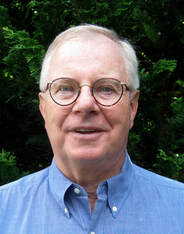 Peter Gow Peter Gow “I (we) wish to acknowledge this land on which the University of Toronto operates. For thousands of years it has been the traditional land of the Huron-Wendat, the Seneca, and most recently, the Mississauga of the Credit River. Today, this meeting place is still the home to many Indigenous people from across Turtle Island and we are grateful to have the opportunity to work on this land.” This invocation, known officially as the “Statement of Acknowledgement of Traditional Land” (the British spelling of “acknowledgement” is the U of T’s, not mine), begins every official function at the university. Developed “in consultation with First Nations House and its Elders Circle, some scholars in the field, and senior University officials,” the statement grows out of truth and reconciliation efforts across Canada, and it is apparently only one example of a growing genre. I’ve occasionally written about the heritage issues that might trouble the sleep of many independent schools; creatures of their times and places, schools have hardly been immune to the influences of racism, sexism, and religious prejudice that shaped and continue to pollute North American society. But few schools have taken a look at the very land on which they sit—land whose history prior to European colonization is sometimes obscure but almost never unknowable. As any school that has found itself on the losing end of an eminent domain decision knows, land “ownership” is never pure and seldom simple; multiple jurisdictions (village, town, county, state, nation) have potential legal claims, for example, upon the land where sits the house that I like to think that I own. But before there were Norfolk County and the Commonwealth of Massachusetts, there were millennia of native peoples with their own complex social, cultural, and political histories, and being reminded of this enriches my appreciation for those histories. It also deepens my uncomfortable understanding of the ways in which these lands became owned by white European settlers and strengthens my desire and will not to be part of oppression in my own time. It happens that one of my kids is working on a doctorate at Toronto, focusing on literature of oppressed and underrepresented cultures, largely in diaspora. He told me about the university’s statement during a conversation about “Pocahontas deniers”—an apparently real slice of our population who apparently don’t believe that Native Americans actually existed, or even that indigenous people exist in North America today. I want to deny these deniers, but apparently they are out there, like so many other deniers of one sort or another, in their willful ignorance. So why don’t all our institutions have their own statements of acknowledgment of “Traditional Land”? You might call such a notion fussily politically correct, but schools, at least, have a purpose to be purveyors of truth, especially about themselves. What good might come of making the effort to trace the past possessors and users of the land before it became the farm or estate or other disused institution where now lies your school? What good might there be in exploring and promoting an understanding of “Turtle Island” as a construct that predates (and interrogates in a powerful way) “manifest destiny”? What good might come of creating a course or a club or a committee of students who might reach out to build connections with the contemporary indigenous neighbors and cultural bodies that exist everywhere in North America? What benefit might there be in refuting the deniers and those who believe or have been taught, as I sort of was more than a half-century ago, that Native Peoples mostly bowed off history’s stage at roughly the beginning of the 20th century—casino gambling, Western movies, and photogenic rituals notwithstanding? There are readers who will say this seems like a small and trivial point to be making against the backdrop of all the work we have to do as educators. But this concept aligns not just with general educational ideals about light and truth but also aligns quite specifically with, say, the Independent Curriculum Group’s Principles: “Congruent with the mission and values of the school;” “High intellectual and ethical standards;” and “Inclusive and just.” It even requires the creation of understood connections between “history” and the real lives and real school work and play spaces of students and teachers—the New Relevance, of which I have written elsewhere, made manifest. As colleges struggle publicly and privately with legacies of slavery and racism, a great many independent schools these days are facing their own obligation to “truth and reconciliation” around past issues of abuse. Truth will out, it seems, so why not look at every aspect of one’s history that might need some explaining and some reconciliation? I believe that sooner or later, like colleges, schools are going to have to face even more troubling aspects of their own histories. We have shied away so far, perhaps in the belief that these things are not for children, but it strikes me that developing a statement around the very land a school occupies might be a good place to start. It’s a way to send a message that we are really prepared to talk about—and do something about—the hard stuff.
0 Comments
Leave a Reply. |
Don't miss our weekly blog posts by joining our newsletter mailing list below:AuthorsBrad Rathgeber (he/him/his) Archives
March 2024
Categories |

 RSS Feed
RSS Feed